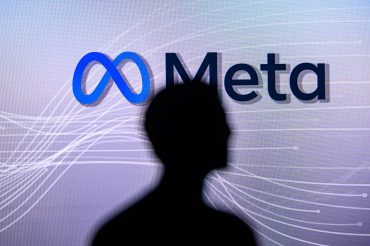
- AI Automation
- AI Governance
- Privacy
- Workforce
Meta to Replace Humans with AI for Privacy Risk Assessments
3 minute read

Tech Giant Plans to Automate 90% of Risk Reviews by 2025, Reducing Human Oversight in Privacy Decisions
Key Facts
- Meta aims to automate up to 90% of privacy and societal risk assessments using AI systems
- The company plans to reduce its workforce by 5% as part of this AI transition
- AI automation could impact 300 million jobs globally, with 45 million at risk in the US by 2030
Introduction
Meta’s announcement to replace human workers with AI for conducting privacy and societal risk assessments marks a pivotal shift in how major tech companies approach workforce automation. This strategic move, led by CEO Mark Zuckerberg, signals a broader industry transformation where artificial intelligence increasingly assumes roles traditionally performed by human employees.
Key Developments
Meta’s initiative focuses on automating complex assessment processes, with AI systems projected to handle 90% of privacy and societal risk evaluations. The company envisions AI functioning at the level of “a mid-level engineer” by 2025, according to Fortune.
Industry leaders like Klarna, Salesforce, and Duolingo are following similar paths, restructuring their workforce to accommodate AI integration. This shift particularly affects entry-level and mid-level positions across the tech sector.
Market Impact
The economic implications of this AI transition are substantial. Projections indicate AI’s economic impact could reach $15.7 trillion by 2030. Currently, 14% of workers report job displacement due to AI, with 60% of positions in advanced economies facing potential automation.
Companies are strategically balancing automation benefits with workforce management challenges. The focus increasingly shifts toward retaining specialized talent while automating routine tasks.
Strategic Insights
Organizations must navigate several critical considerations in this transition. The automation of risk assessments raises questions about AI’s capability to handle nuanced ethical decisions and complex societal implications.
The workforce transformation creates immediate challenges, with 120 million workers potentially requiring retraining within three years. Companies face decisions between investing in employee development or reducing personnel.
Expert Opinions and Data
Industry analysts emphasize the need for balanced implementation of AI automation. While the technology offers clear efficiency gains, human oversight remains crucial for tasks requiring ethical judgment and creative problem-solving.
Market research indicates that companies maintaining human expertise in specialized roles while automating routine tasks achieve optimal results. This hybrid approach helps mitigate risks while maximizing AI’s potential.
Conclusion
Meta’s move toward AI automation represents a significant shift in corporate strategy and workforce management. The balance between technological efficiency and human expertise emerges as a critical factor in successful implementation, while companies navigate the complex implications for their workforce and operational processes.








